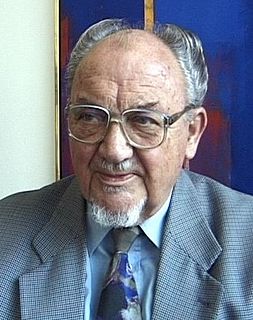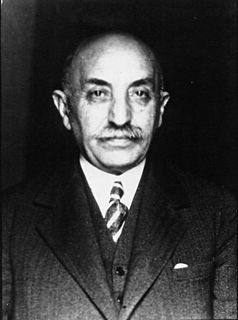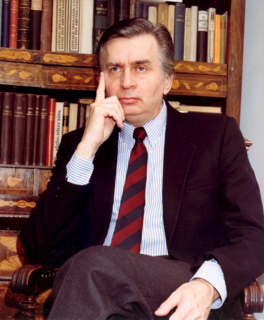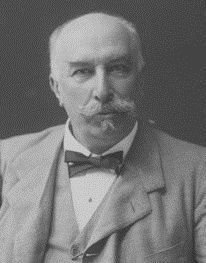The Liberal Party of Andorra is a liberal and conservative-liberal political party in Andorra. It is a member of the Liberal International and the Alliance of Liberals and Democrats for Europe.

General elections were held in Denmark on 4 December 1973 and in the Faroe Islands on 13 December. It has since been referred to as the Landslide Election, as five new or previously unrepresented parties won seats, and more than half the members of the parliament were replaced. The Social Democratic Party, which had led a minority government until this election, lost a third of their seats. After the election Poul Hartling, the leader of the liberal Venstre, formed the smallest minority government in Denmark's history with only 22 seats, supported by the Progress Party, the Conservative People's Party, the Social Liberal Party, the Centre Democrats and the Christian People's Party.
The Democratic Party is a center-right party in Bulgaria led by Alexander Pramatarski. The party is a member of the European People's Party (EPP).

Parliamentary elections were held in Greece on 5 March 1933. The pro-monarchist People's Party emerged as the largest party, winning 118 of the 248 seats in Parliament, ending the predominance of Eleftherios Venizelos' Liberal Party. The results triggered an attempted coup by Venizelist officers. A military emergency government under Alexandros Othonaios was instituted which suppressed the revolt, and was succeeded by a People's Party cabinet under Panagis Tsaldaris on 10 March.

Parliamentary elections were held in Hungary on 10 May 1998, with a second round of voting in 175 of the 176 single member constituencies on 24 May.

Parliamentary elections were held in Greece on 31 March 1946. The result was a victory for the United Alignment of Nationalists, an alliance that included the People's Party, the National Liberal Party, the Reform Party, which won 206 of the 354 seats in Parliament. As a result Konstantinos Tsaldaris became Prime Minister leading a right-wing coalition. Nonetheless, he soon decided to resign in favor of Themistoklis Sophoulis, who led a government of national unity during the entire second phase of the civil war (1946–1949). One of the priorities of the new government was the proclamation of a plebiscite for the restoration of the Greek monarchy.

Parliamentary elections were held in Greece on 26 January 1936. The Liberal Party emerged as the largest party in Parliament, winning 126 of the 300 seats.

The 1990 Hungarian parliamentary elections were held in Hungary on 25 March 1990, with a second round of voting taking place in all but five single member constituencies on 8 April. They were the first completely free and competitive elections to be held in the country since 1945, and only the second free elections in the country's history. The conservative, nationalist Hungarian Democratic Forum (MDF) beat the liberal and more internationalist Alliance of Free Democrats, which had spearheaded opposition to Communist rule in 1989, to become the largest party in parliament. The Hungarian Socialist Party, the former Communist party, suffered a crushing defeat, winning only 33 seats for fourth place.

General elections were held in Belgium on 27 November 1932. The Catholic Party won 79 of the 187 seats in the Chamber of Representatives and 42 of the 93 seats in the Senate. Voter turnout was 94.3%.

General elections were held in Italy on 26 October 1913, with a second round of voting on 2 November. The Liberals narrowly retained an absolute majority in the Chamber of Deputies, while the Radical Party emerged as the largest opposition bloc. Both groupings did particularly well in Southern Italy, while the Italian Socialist Party gained eight seats and was the largest party in Emilia-Romagna. However, the election marked the beginning of the decline of Liberal establishment.

The Liberal Party, also known as the Radoslavists was a political party in Bulgaria from 1887 until 1920.
The People's Party was a political party in Bulgaria between 1894 and 1920.

The National Liberal Party was a political party in Bulgaria.
The Democratic Union or Democratic Union Party was a political party in Greece, founded by the prominent liberal and republican politician Alexandros Papanastasiou.
The National Democratic Party, later renamed National Radical Party, was a political party in Greece in the 1920s led by Georgios Kondylis.
The Progressive Party was a political party in Greece in the 1920s and 1930s led by Georgios Kafantaris.
The Farmers' Party was a political party in Greece in the 1920s and 1930s.

The Labour Party is a minor political party in Moldova led by Gheorghe Sima.

The Republican Evolutionist Party, commonly known as the Evolutionist Party, was a political party in Portugal led by António José de Almeida.

The Republican Union Party, commonly known as the Republican Union or the Unionist Party, was a political party in Portugal.


















